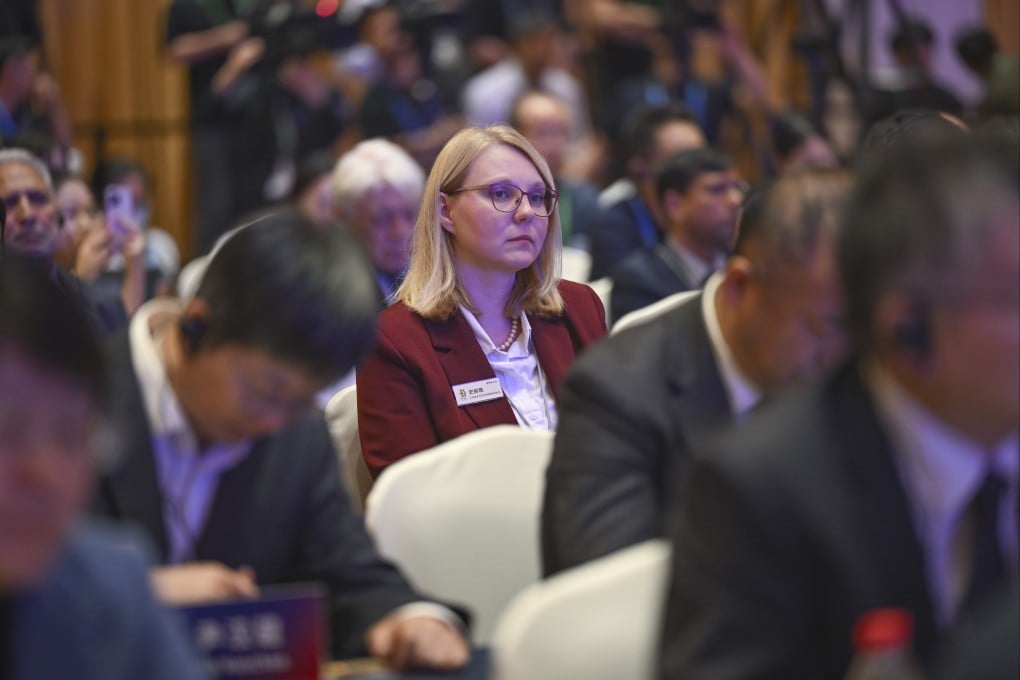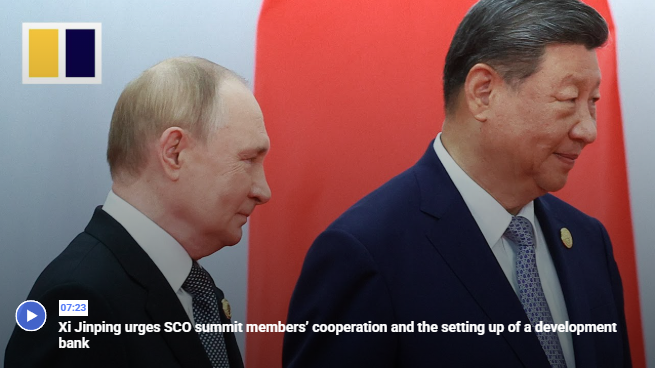Mingde Strategic Dialogue
Your Present Location: Trending> Mingde Strategic DialogueWestern framework ‘cannot explain’ China, academics say in call for context
Western framework ‘cannot explain’ China, academics say in call for context
Chinese politics, progress and governance cannot be fully explained by existing theories but are ‘demonstrably effective’, conference hears
Source: SCMP
By Vanessa Cai
Update: Oct 17, 2025, 7:43 PM

Western theoretical frameworks are often ill-suited for China studies, according to Chinese academics who called instead for research that was grounded in the country’s specific context.
The case for a tailored approach, bolstered by field research to correct biases and enable deeper understanding, was made at this week’s World Conference on China Studies in Shanghai, attended by hundreds of Chinese and foreign academics.
Amid an intense war of narratives with the United States, China has been making an effort to build soft power with the argument that its development path offers an alternative to the Western approach.
Beijing has also been promoting the Global Civilisation Initiative, proposed by President Xi Jinping in March 2023, which advocates respect for the equality and diversity of civilisations and opposes any country imposing its values on another.
 Xi Jinping urges SCO summit members’ cooperation and the setting up of a development bank
Xi Jinping urges SCO summit members’ cooperation and the setting up of a development bank
At the forum’s opening ceremony on Tuesday, Lin Shangli, president of Renmin University of China, said it was hard to interpret the transformation of non-Western countries from ancient to modern civilisations through Western logic and knowledge systems.
“Clearly, Western logic cannot explain [China] and we must return to the Chinese context itself to do so,” Lin said, giving the example of China’s governance structure, which could not be explained by Western theory because of the huge gap in social scale.
“These issues have their own logical framework in Western theory, but this logic is derived from and based on the experience of studying non-super-large-scale societies. Simply applying this logic to solve China’s problems is clearly unrealistic.”
He called for a “breaking away from existing knowledge frameworks” when studying China and said that research should be grounded in the Chinese context.
Lin, a scholar of Chinese politics, noted that the country’s history, which “formed the underlying logic”, should be given systematic and in-depth study.
“China has its own logic – in its structure regarding society, the state, its politics, economics, development and governance. These logics cannot be adequately explained by existing theories, yet they are demonstrably effective in practice,” he said.
“Therefore, this is a call for scholars studying China to develop a new understanding of the underlying factors and new elements behind these structures.”
“We still need to seriously explore the academic positioning of China studies and address the gaps between different research fields,” he said.
“Modern research methods have not yet been fully utilised, academic innovation remains insufficient and many areas have yet to reach the deeper layers of China’s history and reality,” Gao added.
“This requires Chinese and foreign scholars to join hands – with a broader academic vision, greater historical resolve and a more rigorous scholarly spirit – to truly bridge China and the world, and connect the past and present.”
Gao is a leading historian on China’s two last imperial dynasties, the Ming and Qing, which ruled from the 14th to the early 20th centuries.
Key Words: China, Mingde, Politics























































































 京公网安备 11010802037854号
京公网安备 11010802037854号





